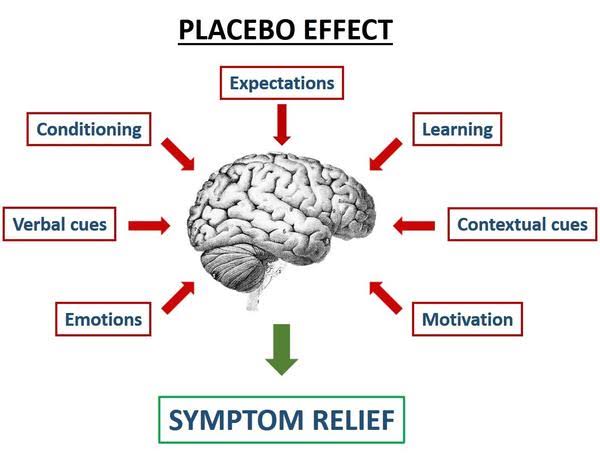The placebo effect is a fascinating phenomenon that occurs when a person experiences real improvements in their health or well-being after receiving a treatment that has no therapeutic value. These improvements occur because the person believes the treatment will work. It’s the power of the mind at play. Imagine having a headache and taking a sugar pill, believing it to be real medicine. Your belief in its effectiveness can actually reduce your headache. That’s the placebo effect in action. Scientists are still unraveling the mystery of how and why this happens, but one thing is clear: our minds hold incredible sway over our bodies. Placebos have been used in medicine since antiquity and may have significantly improved health and quality of life when little was known about the causes of most illnesses.
Despite dramatic advances in scientific knowledge about the placebo effect, efforts to characterize this phenomenon remain in their early stages. The complex nature of mind-body interactions, combined with the negative connotations historically associated with placebos, has hampered understanding. However, researchers are beginning to uncover the neurobiological basis of placebo effects. Two hypothesized psychological mechanisms, classical conditioning and expectancy, are thought to mediate the placebo effect.
Classical conditioning is a form of learning where an association is formed between a stimulus and a response. This association is remembered and influences future experiences. Through this process, patients may develop specific behaviors. For example, a patient might report reduced pain after taking a placebo pill that resembles medication previously effective in relieving their pain. When the same stimulus is encountered later, the patient’s expectations shape their response, triggering a reaction imprinted in memory. Learning and adaptation thus drive a conditioned response.
Patient expectations also play a vital role in mediating the placebo effect. These expectations can influence the course of treatment by affecting psychological and physiological responses. Alongside classical conditioning, expectations can be shaped through verbal instructions or social learning. For instance, a research subject treated for pain with a placebo, coupled with verbal cues suggesting the placebo is an effective painkiller, might form positive expectations, thereby eliciting a pain relieving response. Conditioning and expectancy often overlap as mechanisms mediating placebo responses, particularly in placebo analgesia, where neurobiological mechanisms are most clearly understood.
In addition to these mechanisms, several other factors influence the placebo effect. These include the patient-physician relationship, the patient’s psychological state and personality, the severity of the medical condition and environmental circumstances. Genetics may also play a role in determining the degree of the placebo effect. Researchers are exploring how genes influence this phenomenon through pathways such as dopamine, opioid, serotonin and endocannabinoid systems. Evidence suggests that while the placebo effect may not alter the underlying pathophysiology of a disease, it can address subjective symptoms, improving a patient’s perceived well-being.
Understanding the mechanisms underlying the placebo effect has potential benefits for clinical practice and drug development. It reminds us that belief and expectation can be powerful tools for healing. The next time you face a health challenge, remember the placebo effect—a compelling reminder that sometimes just believing in the possibility of improvement can jumpstart the healing process.
